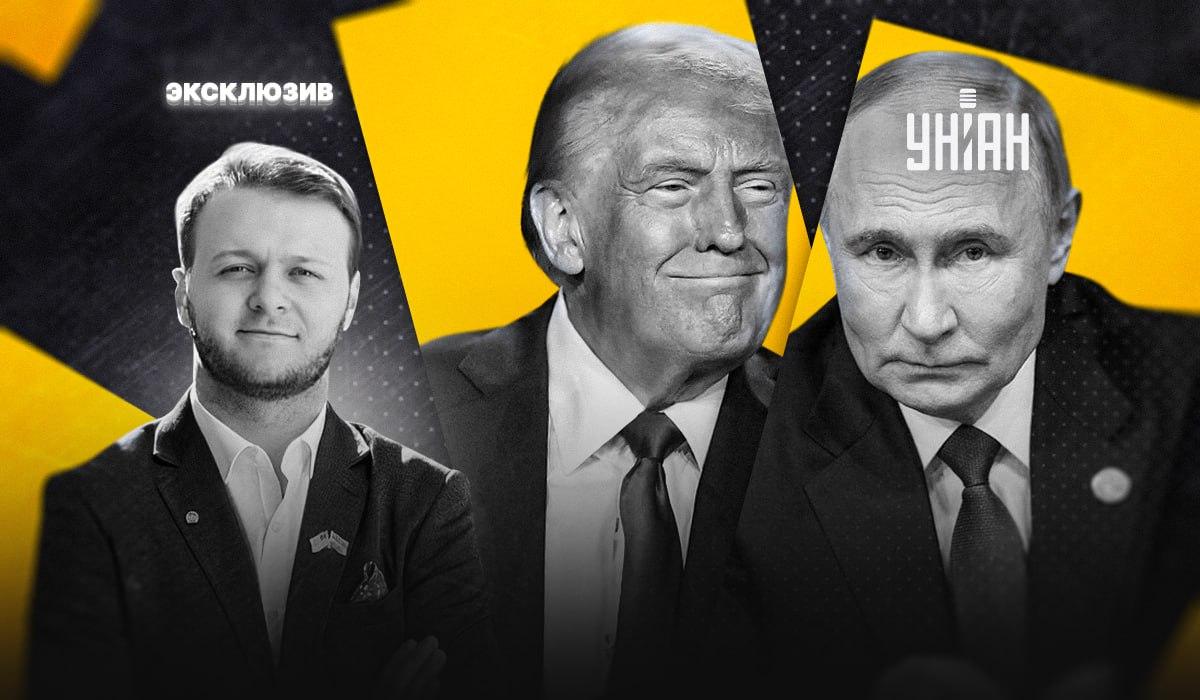
The Republican Donald Trump has won the presidential election in the United States of America. His decisive advantage over the Democrat Kamala Harris came from his victory in Wisconsin. Trump will return to the White House after a four-year hiatus, having secured 277 electoral votes out of the 270 needed for victory. What will Trump's policy be regarding Ukraine, and will his stance on Russia change? Vladislav Faraponov, head of the "Institute of American Studies" and analyst at "Internews-Ukraine," shared insights in an interview with UNIAN.
How will Trump's presidency be influenced by his surroundings?
It will have an impact, but from the perspective that he will receive information from his surroundings while making decisions independently.
Before the second election, he surrounded himself exclusively with like-minded individuals. Does this mean that Trump will have significantly more freedom to act?
He is a president entering a second term, so I would say yes, in general. He will indeed have more freedom, and he may consider some global issues even more than just domestic policy, although that will certainly remain a priority. However, he will also think about global foreign policy matters, particularly the cessation of the war in the Middle East and the end of Russia's war against Ukraine. This means he will focus on fundamental and serious issues rather than just symbolic ones.
Mike Johnson will become the Speaker of the House of Representatives, and he has "no appetite to feed Ukraine." Will the Republican Party indeed take the lead at all levels - in the White House, Congress, and the Senate?
I believe Speaker Johnson is not opposed to helping Ukraine. He simply wants to solidify his leadership within the Republican Party and prioritizes his own interests in terms of re-election and his party. The Republicans are leading in the House elections. However, I think there might be a slight advantage for the Democrats in the House of Representatives, and a Democrat might become the Speaker. So, we will see.
How can Trump bring Zelensky and Putin to the negotiating table, and will they agree to that?
There will now be communication between the Ukrainian team and Trump's team. It is unclear how much pressure Trump is willing to exert on Putin. Once we understand this, it will be easier to communicate and convey our position. I met with the Ukrainian ambassador to the U.S., Oksana Markarova, and I realized that we will not make any compromises, which is the right approach; it's a strong position. Therefore, we first need to understand whether Trump is willing to pressure Putin and to what extent. Otherwise, how can we prepare for negotiations? If Trump wants negotiations, there must be clear clarity regarding Ukraine's involvement.
What threats does Ukraine and Russia face if they reject Trump's ideas or disagree with his plans as presented by his team before the elections?
Regarding Moscow, this could mean restrictions for Russian satellites around the world. There may be even more sanctions, including personal sanctions. Essentially, the levers of influence on Russia, aside from increasing financial and military aid to Ukraine, would be sanctions and a "cooling" of contacts.
For Ukraine, this could mean a lack of or a reduction in aid to a minimum. This is the main sanction for Ukraine.
Given the "legacy" left by the Democrats and Trump's promises to fix everything from the economy and inflation to immigration policy, will he focus all his efforts, time, and money on restoring order in the U.S., leaving Ukraine without the previous attention?
I think especially in the first two years, he will concentrate on domestic policy. That will be a priority. But that doesn't mean there won't be any focus on foreign policy.
If Trump sees that Putin is not interested in negotiations and peace, could he push for Ukraine's NATO membership?
I don't think so.
In Europe, before the elections, there was much talk about how the Old World needs to prepare to live in a new reality where the U.S. will no longer be the leaders of the Western world as they have been for the past decades. Can Europe continue to support Ukraine without the U.S. and compensate for what Ukraine might potentially not receive from the U.S.?
Firstly, Europe is very slow in terms of supporting Ukraine, including in arms production. It is highly unlikely that Europe will be able to compensate for U.S. assistance. Secondly, I believe the U.S. will continue to be the leader of the Western world moving forward.